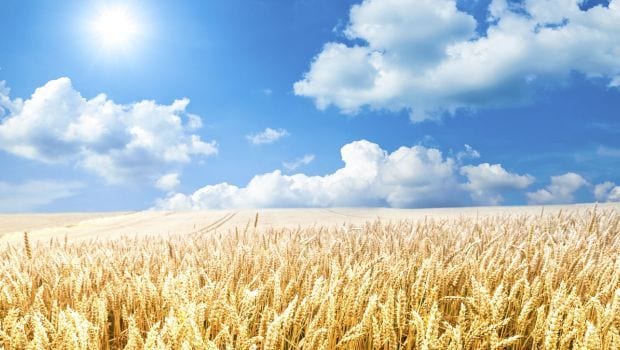India's crop yields are lower than those in the US, Europe and China and the government is implementing several schemes to address this issue, Agriculture Minister Radha Mohan Singh said today.He however noted that the low crop yields cannot be attributed to "non-availability" of improved technologies but several factors including short growing season, varied agro-climatic conditions and weather extremities."The productivity of various crops and legumes in the country is less as compared to that of some countries in Europe, the US and China," Singh said during the Question Hour in the Lok Sabha.
Large areas being under-rainfed and harsh environment also accounted for non-realisation of productivity potential of improved technologies, he said. Singh said that in countries with high productivity, crops are largely grown in high input management conditions of long growing period without any stress of moisture and temperature.Whereas in India, on the same land, farmers grow more than one crop in a year and per day productivity of most of the crops was comparable to the global average, he added.According to the crop yield data placed before the House, India's rice yield was 2191 kg/hectare, while the global average stood at 3026 kg/hectare, while wheat is 2750kg/hectare as against the world average yield of 3289 kg/hectare.Replying to a query that if there was sluggish progress in improving crop yields, the Minister said the Indian Council of Agricultural Research (ICAR) is conducting research in 26 commodities, while several schemes such as National Food Security Mission (NFSM) have been rolled out to increase production and productivity of agri-crops.Under these schemes, funds are being provided to states for implementing state-specific agri-strategies, he said."As a result of implementation of various crop development schems/programmes, the production and productivity of most of the agricultural crops have increased," he said.For instance, the country's rice yields have increased from 2131 kg per hectare in 2006-07 to 2416 kg per hectare in 2013-14, while wheat yields have gone up from 2708 kg per hectare to 3145 kg per hectare in the same period, he added.Singh observed that the production and productivty of agri-crops during 2014-15 and 2015-16 declined due to deficit rainfall.(This story has not been edited by NDTV staff and is auto-generated from a syndicated feed.)
Large areas being under-rainfed and harsh environment also accounted for non-realisation of productivity potential of improved technologies, he said. Singh said that in countries with high productivity, crops are largely grown in high input management conditions of long growing period without any stress of moisture and temperature.Whereas in India, on the same land, farmers grow more than one crop in a year and per day productivity of most of the crops was comparable to the global average, he added.According to the crop yield data placed before the House, India's rice yield was 2191 kg/hectare, while the global average stood at 3026 kg/hectare, while wheat is 2750kg/hectare as against the world average yield of 3289 kg/hectare.Replying to a query that if there was sluggish progress in improving crop yields, the Minister said the Indian Council of Agricultural Research (ICAR) is conducting research in 26 commodities, while several schemes such as National Food Security Mission (NFSM) have been rolled out to increase production and productivity of agri-crops.Under these schemes, funds are being provided to states for implementing state-specific agri-strategies, he said."As a result of implementation of various crop development schems/programmes, the production and productivity of most of the agricultural crops have increased," he said.For instance, the country's rice yields have increased from 2131 kg per hectare in 2006-07 to 2416 kg per hectare in 2013-14, while wheat yields have gone up from 2708 kg per hectare to 3145 kg per hectare in the same period, he added.Singh observed that the production and productivty of agri-crops during 2014-15 and 2015-16 declined due to deficit rainfall.(This story has not been edited by NDTV staff and is auto-generated from a syndicated feed.)
Advertisement








